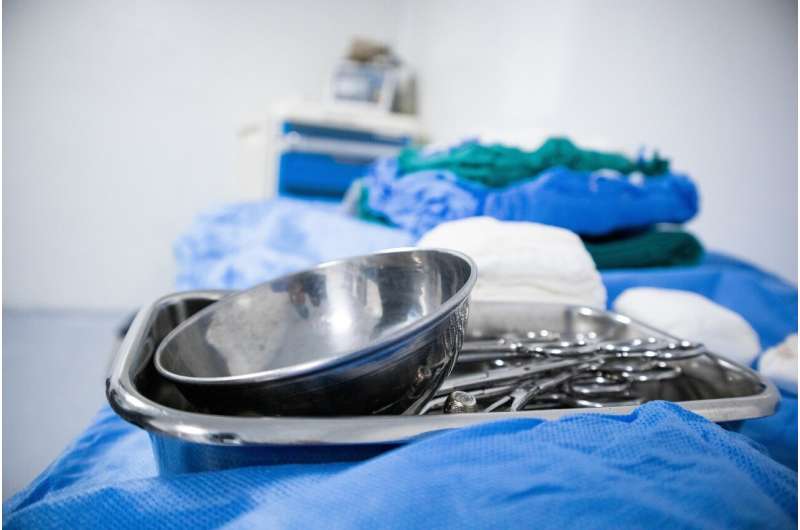This article has been reviewed according to Science X's editorial process and policies. Editors have highlighted the following attributes while ensuring the content's credibility:
fact-checked
trusted source
proofread
How a common skin bacterium can cause chronic infections after orthopedic surgery

In individuals who have undergone knee or hip replacement surgery, clinicians are noticing increasing numbers of chronic bone infections linked to a bacterial strain commonly found on the skin. A study published in the Journal of Orthopaedic Research provides insights into the mechanisms involved.
Using mouse models of bone infection and systematic electron microscopy studies, scientists found that the common skin bacteria Cutibacterium acnes can persist as layers of biofilms for weeks on contaminated titanium or stainless-steel implants. It can also invade deep pockets of the bone called canalicular networks and be present within the bone for long periods of time.
"Our study highlights that osteocyte lacuno-canalicular networks can be a major reservoir for this bacterium and potentially provides a novel mechanism of why Cutibacterium acnes chronic bone infections are difficult to treat in the clinic," said corresponding author Gowrishankar Muthukrishnan, Ph.D., of the University of Rochester Medical Center.
More information: Gowrishankar Muthukrishnan et al, Cutibacterium acnes invades submicron osteocyte lacuno-canalicular networks (OLCN) following implant-associated osteomyelitis, Journal of Orthopaedic Research (2024). DOI: 10.1002/jor.25929


















